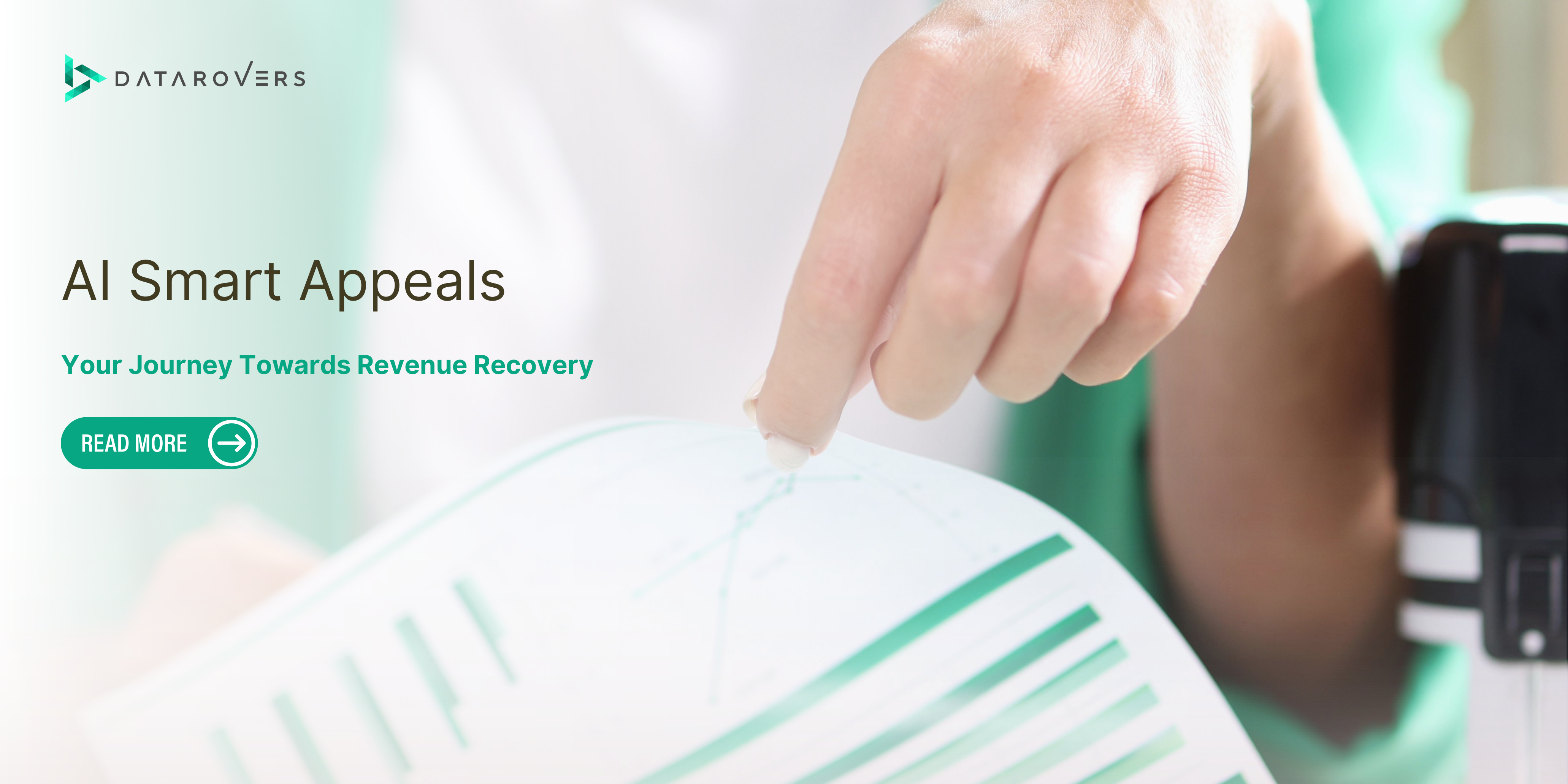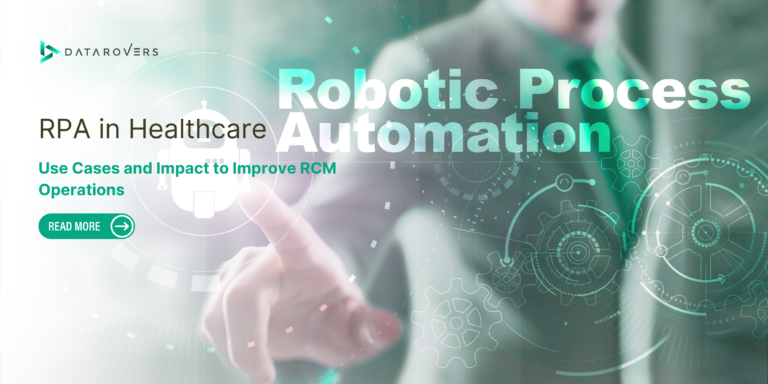Introduction
Unsolved claim denials are a common issue in the healthcare industry. On average, denied claims cause hospitals an annual loss of $5 million, representing up to 5% of net patient revenue. The major drawback behind this revenue loss is the cumbersome traditional outdated healthcare appeal process. Creating appeals requires the manual effort of writing and submitting appeals which causes delays, errors, and administrative burdens for teams. Thus, it is a time-consuming process that drains resources and makes it challenging for providers to recover denied claims efficiently. There is a huge need for automation in appeal generation, submission and getting them approved with the right technology to save time and improve patient care.
In this blog, we will tell you how AI in healthcare can help in creating faster claim appeals with payers’ perspective to get them approved by 70%.
Overview: Traditional Appeal Management System
In the traditional healthcare sector, creating appeals is time-consuming and resource-intensive. It is because resources have to write appeals manually which demands extensive research, repetitive data updates and data entry. The single appeal writing process takes up to 45 minutes. However, if the appeal gets rejected, the cycle continues for significant hours to find out the reason for denial and data tallies which strain resources.
On the other hand, manual appeal generation is at high risk of manual errors which leads to most rejections. As a result, it delays revenue recovery for healthcare providers and puts administrative burdens on them. According to the Medical Group Management Association (MGMA), claim denials rose by 17% in 2021. Nearly 20% of all claims are denied, and 60% of returned claims are never resubmitted. The cost to rework or appeal these denials is steep is $25 per claim for practices and $181 for hospitals. However, not all denied claims are a lost cause; up to two-thirds are recoverable with a strategic, payer-aligned approach that minimizes costs and streamlines workflows. Hence this traditional outdated process amplifies changes as writing appeals is an important step in recovering denied claims and getting reimbursements.
AI in Healthcare Appeal Generation: Smart Appeals
AI in healthcare is a game-changer. It is changing the way healthcare providers traditionally manage appeals. AI platforms like Smart Appeals are providing automation in the outdated process which is making it process smarter and aligned with payers’ requirements, reducing the chance of rejections. Let’s see how Smart Appeals is making appeal processing more effective for providers:
1. Automated Appeal Generation
AI in the platform – Smart Appeals can reduce the need for manual written appeals. It can generate personalized appeals in seconds. AI appeal generation functions by using pre-built templates and real-time data to generate accurate and payer-specific appeals. Drastically, it reduces the time of appeal creation and also improves productivity by 5x.
2. Pre-Filled Insurance Forms
Smart Appeals automates data entry by auto-populating appeal forms with patient, provider, and claim information. As a result, there is less risk of errors. However, smart automation reduces submission times by 50%. Hence, providers focus on winning appeals rather than being burdened by administrative tasks.
3. Advanced Analytics for Payer Insights
Smart Appeals leverages AI advanced features like machine learning. ML can help in analyzing historical denial patterns(data) and provide insights into why claims were being denied. With this, it aligns newly generated appeals with payers’ preferences and guidelines. In this way, providers get appeal approvals by up to 70%.
4. Real-Time Monitoring and Alerts
Smart Appeals, an AI-driven appeal generation platform tracks the status of appeals throughout their lifecycle and provides real-time alerts for any updates or required actions. The platform takes a proactive approach to prevent appeals from getting lost in payer systems.
5. Comprehensive Lifecycle Management
Smart appeals is not only for appeal generation. It helps providers from initiation to resolution with complete oversight of the appeals process. It provides centralized documentation and streamlined queue management to make it easy for providers to track progress and retrieve supporting evidence without delays.
6. Reduced Administrative Burden
The AI platform for healthcare appeal generation for denied claims automates the appeal process. As a result, there is a reduction in the workload on administrative staff. This way, teams can focus on strategic tasks like analyzing denial trends and improving processes which ultimately enhance patient care and operational efficiency.
7. Cost Savings
On average per claim re-work costs $25 to $181 to providers. Smart appeals minimize this by reducing errors and automating the process of appeals. It means AI-driven automation cuts down on the costs associated with manual appeals and helps healthcare providers with revenue cycle management (RCM).
Is Appeal Automation Needed For Denied Claims in Healthcare?
Providers go through huge revenue losses when they have to resolve an appeal. The timeline of resolved claims depends on their type and urgency.
- Insurers take 72 hour when it is urgentcare appeal

- For non-urgent appeals, they take up to 30 days.

- For rendered services, insurers take decisions in 60 days.

However, if an appeal is denied, insurers do not inform providers that they must provide a written explanation, outline additional appeal options, and detail the patient’s right to seek judicial or external review. This shows how lengthy and redundant the process is. It highlights the inefficiency of traditional systems which need AI advanced tools to simplify and accelerate appeals management for better patient care.
Revolutionizing Healthcare Appeal Management: Introducing Smart Appeals
All the challenges and hurdles mentioned above demonstrate the need for a smarter, faster approach to handling denied claims in healthcare. The healthcare industry is in dire need of a tool like Smart Appeals.

Smart Appeals is an AI-powered platform – a Flagship Product of DataRovers, a Leading Health IT company. This platform is bringing a huge change in the traditional appeal process. It automates appeal generation, streamlines submission workflows, and aligns appeals with payer-specific requirements. Moreover, it reduces errors and helps providers recover denied claims efficiently. The company have AI experts who excel in leveraging advanced technologies in healthcare systems like AI, machine learning, and natural language processing to prevent revenue loss and enhance financial health in the healthcare industry. Using SmartAppeals, providers have already seen a difference of:
Align Priority Claims With Maximum Reimbursement Chances!
Managing claim denials has long been a challenge in the healthcare industry. With traditional appeal management, providers have to go through delays, errors, and significant administrative burdens. They struggle to recover denied claims which causes them to lose revenue and strained resources. As highlighted earlier in this blog, the outdated manual approach to appeals is not working. It has drawbacks like it is time-consuming and costly. That is why, the healthcare appeal management system demands a smarter, more efficient solution like Smart Appeals.
Using this providers can address these challenge head-on by automating critical steps like appeal creation and form population. It has advanced features like real-time monitoring, payer insights, and lifecycle management. This AI platform boosts productivity by up to 5x and reduces costs by 30%. Thus, smart appeals are the best solution for healthcare providers to reclaim denied claims effectively while focusing on patient care.
Final Thoughts
Are you a healthcare provider or a healthcare organization struggling with similar challenges? It’s time to leave behind the inefficiencies of traditional systems and get integrated a smarter way to manage healthcare appeals.
Use Smart Appeals and turn claim denials into better financial outcomes. Get a demo




